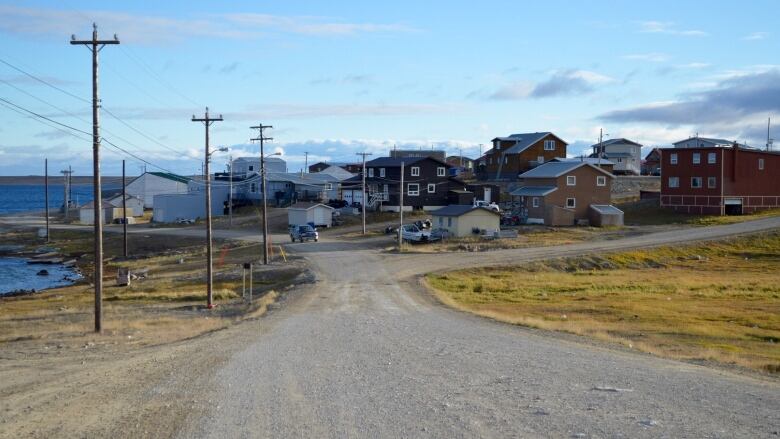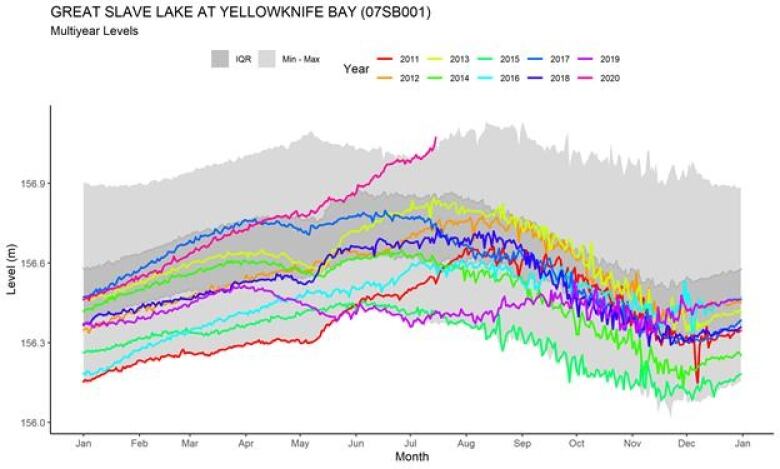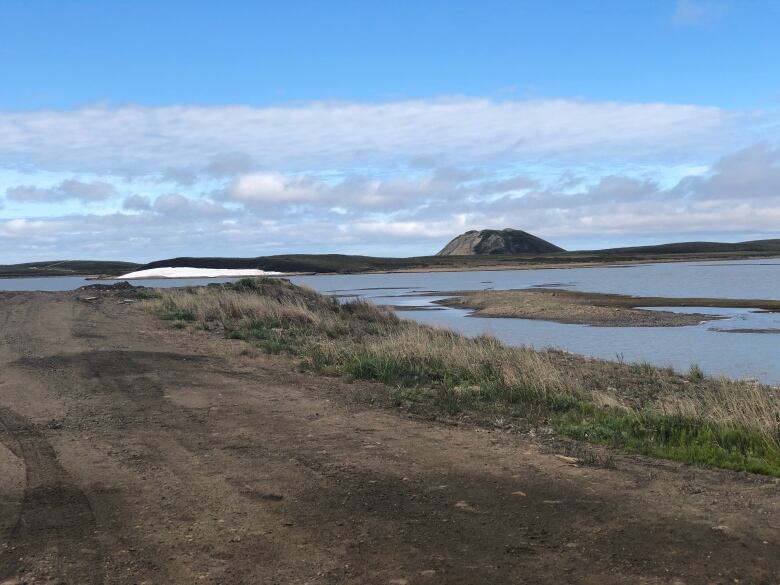High water levels and COVID-19 causing stressful barge season
It's been a bumpy season for MTS barges, but an official says they're still on schedule

Barge season has proved stressfulthis season, as Marine Transportation Services (MTS) has been dealing with high water levels and COVID-19 restrictions.
Steve Hagerman, the director of MTS, the N.W.T. government-owned barge company, says it hasfaced several challenges this season, and the barges are on the water about three weeks later than normal.
The bargesbring critical fuel and other dry goods to Arctic coastal and Mackenzie River communities every summer. This season,MTS vessels are expected to reach 12 communities in the Northwest Territories and Nunavut.
"The biggest problem we've had this season, besides COVID[-19], is the high water levels. Extremely high water," said Hagerman.
"It's not so much that we can't operate our vessels in high water, it's more that the Canadian Coast Guard won't deploy their buoys."
He said high water means debris and trees can knock out the buoys. Due to safety reasons, he said MTScan't deploy barges without buoys in the water, since they're critical locators and warning points.
There's been four or five really big things that have happened so far, and we are still on schedule.- Steve Hagerman, Marine Transportation Servicesdirector
Residents in the N.W.T. along the Mackenzie River and Great Slave Lake have both reported seeing higher water levels, and some say they've seen more wood and debris than previous years.
According to a graph provided by the N.W.T. Department of Environment and Natural Resources, the water levels on Great Slave Lake are above 156.9 metres, which is much higher than previous years.

Hagerman said MTS has five vessels sailing this year, some of which are set to end sailing in August and others not until the end of October.
The first barge left around the first week of July with fuel for Norman Wells, N.W.T., but had to remain about 64 kilometres outside of the community for several days because the rest of the buoys on its path were not completed, he said.
Now that thewater is starting to recede, MTS ishopeful that the barge will be able to reach its final destination soon. Hagerman said the company has to be flexible, as the schedule and plans can change as quickly as the water levels.
COVID-19 'an absolute unique challenge'
Hagerman said the COVID-19 pandemic has also created new challenges that he "could write a book on."
"COVID was an absolute unique challenge and it was one that we had to address fairly quickly because Marine Transportation Services, by definition, is an essential service," said Hagerman.
He said vessel crews, who come from across Canada and beyond, self-isolated for 14 days in one-bedroom apartments prior to sailing. He said that's an additional and quite costly expense this season.
There are also new health protocols for the barges, so community members can feel safe about their arrival.

"Some of the smaller communities, we've made arrangements where they don't even come down to meet the boats," said Hagerman.
"They've set aside an area that will have nobody around it. We will offload and then get back on the boat and leave. After we've left, they'll come down and get their cargo."
Overall, Hagerman is proud of the teamwork involved in pulling off this unpredictable barge season.
"We are accommodating the delays. We are also accommodating for high water [and] debris in the water. Before that, we were accommodating for what they thought was going to be historic ice in the spring, and then COVID[-19]," said Hagerman.
"There's been four or five really big things that have happened so far, and we are still on schedule. So that's a real testament to the quality of the people who are working here."












_(720p).jpg)


 OFFICIAL HD MUSIC VIDEO.jpg)
.jpg)



























































































